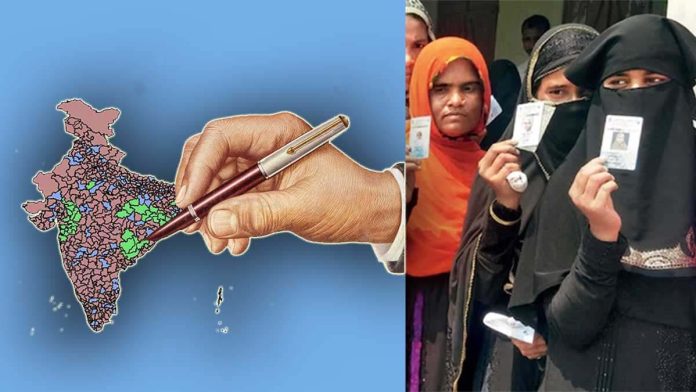In the run-up to India’s forthcoming general elections, concerns over the diminishing presence of Muslim representatives in Parliament have come to the forefront, reflecting broader shifts in the country’s political dynamics under Prime Minister Narendra Modi’s leadership.
The city of Rampur, where over half of the voters are Muslim, stands as a stark example of this trend. Despite the Muslim-majority demographics, the sitting Member of Parliament staunchly supports Modi’s Hindu-centric policies, a scenario replicated across Hindu-majority regions where victory for Modi’s Bharatiya Janata Party (BJP) is perceived as almost certain, making Muslim candidates appear as liabilities at the polls.
India’s Muslim population, numbering around 220 million, constitutes close to a fifth of the total populace. However, their representation in Parliament has dwindled significantly over the years, plummeting to less than five percent from the 1970s.
Ghanshyam Singh Lodhi, a Hindu MP confident of re-election in Rampur, underscores the prevailing trend of political affiliation gravitating towards the BJP. Lodhi, who succeeded a Muslim MP in a 2022 by-election, underscores the challenge of Muslim underrepresentation in the BJP, where none of the 310 lawmakers are Muslim.
Ziya Us Salam, a noted author on Muslim affairs, attributes this trend to a historical reliance of Muslim voters on secular parties, which has inadvertently led to an “acute absence of Muslim leadership” in Indian politics. The emergence of an overtly Muslim leader today risks stoking sectarian tensions, while Modi’s espousal of India as a “Hindu Rashtra” goes largely unchallenged.
Critics like Kanwal Bharti, an activist from Rampur, lament the BJP’s electoral dominance, suggesting that Muslim candidates face insurmountable odds in securing victory. Rampur’s last Muslim MP, Mohammad Azam Khan, faced legal challenges and eventually imprisonment, amidst what his supporters argue were politically motivated allegations.
Allegations of electoral manipulation targeting Muslim voters also mar the electoral landscape, exemplified by a legal challenge over a 2022 by-election outcome dismissed on a technicality. This underscores a broader pattern of disenfranchisement facing Muslim voters like 75-year-old Mohammad Salam Khan, who fears a recurrence of voting obstacles.
Asaduddin Owaisi, a lawmaker from the All India Council for Unity of Muslims, highlights the reluctance of secular parties to field Muslim candidates, fearing a loss of Hindu voter support. Owaisi accuses the ruling BJP of fostering fear among Muslims, making electoral success for Muslim candidates increasingly improbable.
The BJP, however, denies active religious discrimination, emphasizing that electoral success depends on candidate performance. Nonetheless, critics like Salam argue that Muslims face systematic exclusion from the democratic process, manifested through ticket denial and constituency redrawings.
In summary, the upcoming elections serve as a poignant reminder of the challenges facing Muslim representation in India’s evolving political landscape, raising broader questions about the inclusivity and diversity of the country’s democratic institutions.




